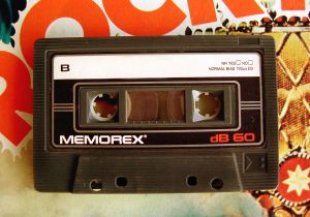Copyright situation or what can be changed

At the moment, there is a situation when the exchange of unlicensed music, films and programs, on the one hand, is “de jure” punishable by law, and on the other hand, millions of people do not consider this occupation criminal, but are recognized as a blessing.
Linguistic reference:
The terms “de jure” and “de facto” are used to describe the situation instead of “in principle” and “in practice”, respectively. It is believed that the rule exists de facto, for example, in the case when people follow a certain order even in contradiction to the law. Plus, there is a process of repealing outdated laws (fr. Désuétude), applied when de facto practice replaces existing law.
')
It is necessary to clearly realize that laws are based on the concepts of society — what is considered “good” and “bad”, and not vice versa. A society at any time may change laws that do not correspond to its perception of justice and forget about them forever.
When a new area of law arises (such as, for example, the area of Internet law), the state first seeks to assess existing practice, and then apply regulatory methods based on established general principles.
The task of society at the moment is to try to realize what is “good” for him and what is “bad” and begin to apply the gleaned principles irrespective of the existing laws (at your own risk, of course).
Despite this risk advice, I consider such a deviation from the rule of law only in these “frontier”, new areas of law as permissible.
The state should direct significant efforts against attempts to monopolize the market through the use of proprietary formats or incompatibility of devices. A good example of the struggle in this area are relatively recent news from the United States .
It's time to get Microsoft to open the specification of .doc and .docx formats, and oblige them to introduce support for the open .odt standard . This will change the situation and force products to compete on the level of service, rather than on the basis of proprietary formats, which we have planted.
The center of gravity in the exchange of information is gradually shifting (and this can not be happy) from content providers to user communities. Somehow it turned out imperceptibly that the collective blogs have become more interesting and saturated with useful information than most print magazines and web_din_nol websites. The indiscriminate use of terribly dreary with free access Rapidshare.de (content provider) was changed to the torrent-protocol (community). Similarly, theoretically, in the future, a professional audiobook recording studio will be able to replace the community, for example, rutracker.org with an army of users, a certain percentage of whom are ready to try themselves in their spare time in the role of reader, the rating system of the records received and donation contributions. The Donation system actually works and the relatively recent lawsuit against the administrator of a musical torrent tracker in the UK, who collected about $ 300,000 donations, clearly demonstrates this.
Today, a huge number of users of torrent trackers are used only for organizing file sharing, but probably with the expansion of cloud computing or similar technologies (read nanotechnologies), it will be possible to accumulate computing power and storage space from peers, and thus maintain For example, a huge forum (or blog) with almost zero costs. Such resources, if desired, will be able to opt out of placing advertisements at all (including hidden ones) and thereby increase their attractiveness to the audience.
Of course, in order for the donation system to work in full force, it is necessary to increase the culture of consumption of free products. If you use Ubuntu, remember how long ago you last donated to Canonical or FSF? That's it.

It is believed that the information product should be divided into the modern part and cultural heritage . The second group includes any materials (audio, video, text) older than 8-10 years. Distribution of such materials with attribution must be absolutely legal. For example, Bob Marley has been dead for almost 30 years, and it is still impossible to download and listen to him freely, because relatives will not decide how to divide him in such a way that is enough for everyone ...
In some Western countries (for example, Germany or the USA), for the exchange of “illegal” content, you can already face quite a real court case today. In Russia, about such a whim is still heard relatively little, but the time is probably just around the corner. (The alarm bell for fans of torrents in Russia has already rung .)
Probably, most of the passive part of the domestic torrent users will just wait for repression, but for the rest, I propose to think about the alternative today.
Of the existing solutions, the fully decentralized I2P network is the most fully consistent with the task of large-scale anonymous information sharing. And everything in it is good - the torrents swing (albeit much slower than in a regular network), the sites open, there is mail, but the content itself is still not enough.
As the saying goes, “From the world by the thread - to a beggar shirt”, so the project Invisible Internet is waiting for you.
Source: https://habr.com/ru/post/101186/
All Articles